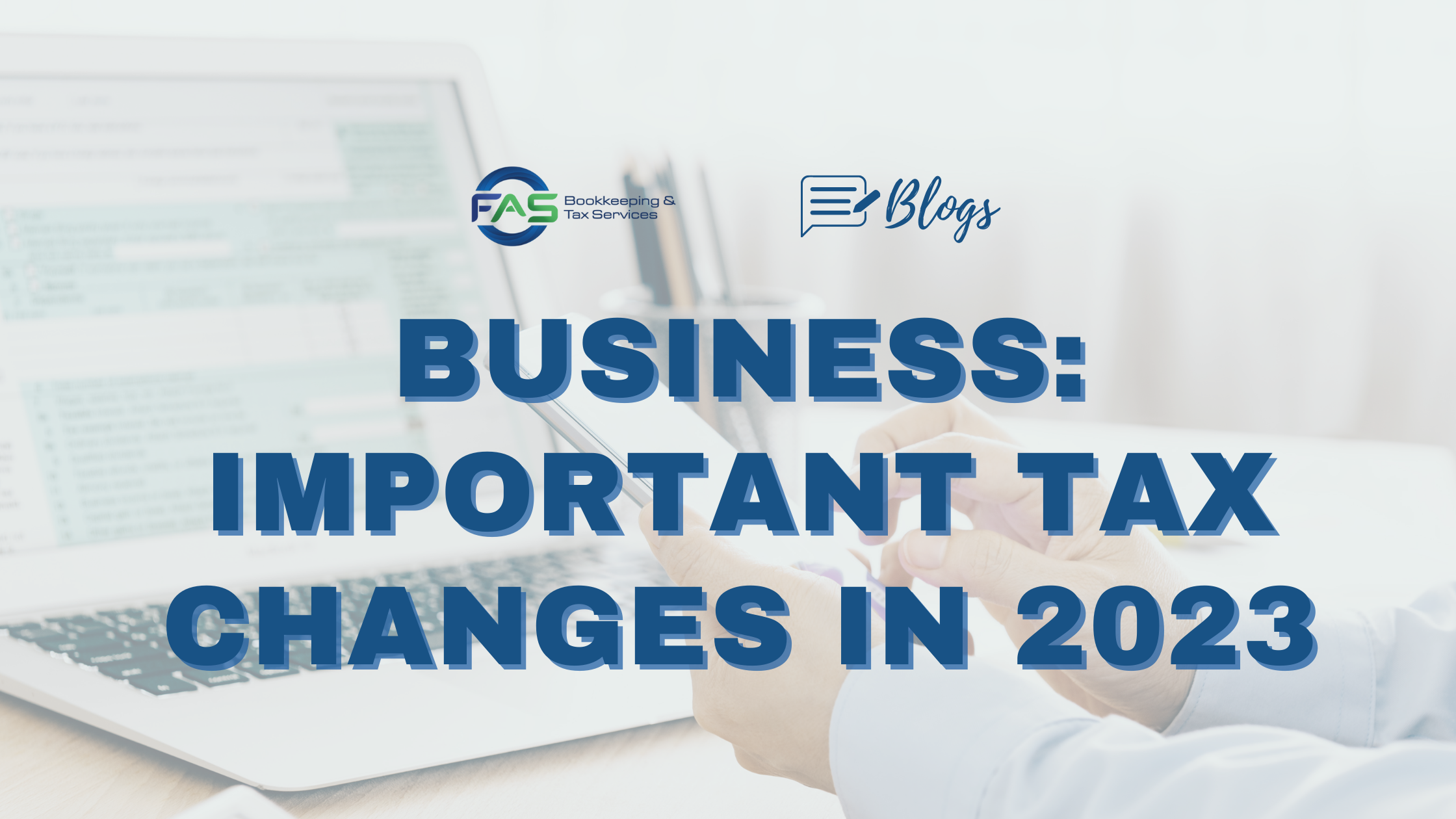Businesses: Important Tax Changes in 2023
Here’s what small business owners need to know about tax changes and inflation adjustments for the year ahead.
Standard Mileage Rates
In 2023, the rate for business miles driven is 65.5 cents, which is 3 cents more than the rate for the second half of 2022, which was set by a midyear increase.
Section 179 Expensing
In 2023, the Section 179 expense deduction will go up to a maximum of $1,160,000. This is the amount that can be deducted from the first $2,890,000 of qualifying equipment put into use during the current tax year. This amount is adjusted for inflation for tax years after 2018. With the Tax Cuts and Jobs Act (TCJA), the deduction was expanded to include improvements to qualified non-residential real property, such as roofs, fire protection, alarm systems, security systems, and heating, ventilation, and air conditioning (HVAC) systems. Also, keep in mind that the costs of buying a sport utility vehicle can’t be more than $28,900 if they are treated as a Section 179 expense.
Bonus Depreciation
Businesses can immediately deduct the full cost of eligible property put into service between September 27, 2017, and January 1, 2023. After that, the deduction will go down over four years: 80% in 2023, 60% in 2024, 40% in 2025, 20% in 2026, and 0% in 2027 and the years after that.
Qualified Business Income Deduction
Taxpayers who qualify can deduct up to 20% of some business income from qualified domestic businesses and some dividends. To get the deduction, the business income must not exceed a certain dollar amount. In 2023, these amounts will be $182,100 for single and “head of household” filers and $364,200 for married taxpayers filing joint returns.
Research & Development Tax Credit
Starting in 2018, this credit can be used to offset the alternative minimum tax for businesses with gross sales of less than $50 million. Some new businesses that might not have any income tax to pay will also be able to use the credit to pay off payroll taxes.
Work Opportunity Tax Credit (WOTC)
The Consolidated Appropriations Act of 2022 has made the Work Opportunity Tax Credit available to employers who hire long-term unemployed people (those who have been unemployed for 27 weeks or more). The credit is usually worth 40 percent of the first $6,000 that a new hire makes.
Employee Health Insurance Expenses
The average wage for tax years starting in 2023 is $30,700 (it was $28,700 in 2022). This amount is used to put a cap on the small employer health insurance credit and figure out who can get the credit as a small employer.
Employer-provided Transportation Fringe Benefits
If you offer transportation benefits to your employees in 2023, the most you can spend each month on a transit pass or a commuter highway vehicle is $300. The limit for qualified parking is $300 per month.
Even though this list shows the most important tax law changes for 2023, more changes are likely to come up during the next year. Don’t be afraid to call the office if you have questions or want to plan ahead for your small business’s taxes in the year ahead.





